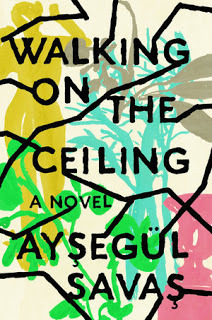David Cooper's Blog, page 2
December 29, 2020
My 2020 first book nominees
Yesterday as a National Book Critics Circle voting member I
submitted my ballot on which I nominated six first books for
NBCC’s John Leonard Prize for a First Book. Any book published
in 2020 that is its author’s first published book is eligible. This
year I read 36 first books of varying genres, but all six books I
nominated are debut novels (in previous years I’ve also nominated
poetry, short story, and essay collections for the Leonard Prize). Here
are my picks in alphabetical order by author’s surname:
These Ghosts Are Family by Maisy Card
Topics of Conversation by Miranda Popkey
My 2020 first book nominees
These Ghosts Are Family by Maisy Card
Little Gods by Meng Jin
Luster by Raven Leilani
Topics of Conversation by Miranda Popkey
Split Tooth by Tanya Tagaq
The Lost Book of Adana Moreau by Michael Zapata
March 6, 2020
תכתבו אהובתנו by אמונה אלון
December 3, 2019
Best 2019 debut fiction books (IMHO)
As a voting National Book Critics Circle member I cast my ballot
(electronically) last week nominating five 2019 first books for
the John Leonard Prize. Any eligible 2019 first book that gets
20% of the member votes will become a finalist. My five
include two debut short story collections and three debut
novels:
The two debut short story collections are about young adults
from marginalized communities: black, Latinx, and/or lgbtq
Houston residentss in Lot by Bryan Washington, and Indian,
Indian-American, and/or lgbtq characters in America and India
both in the present day and earlier eras in White Dancing Elephants
Ayşegül Savaş‘s debut novel Walking on the Ceiling features its
first person narrator’s interior monologue set mostly in Paris
where she moves following her mother’s passing but also in her
native Istanbul from which she grows increasingly distant
and disconnected the longer she lives in Paris, and as the political
situation at home makes a return risky.
The other two debut novels also feature young women who run
away as a response to grief for a parent. In Madhuri Vijay‘s
The Far Field a young Bangalore woman with a post-graduate
degree and a coveted job in a technology company leaves all that
(and her father) behind to travel to the Indian part of Kashmir
that is under martial law hoping to find the Kashmiri door to door
salesman whom her late mother befriended. In Amanda Goldblatt‘s
Hard Mouth the first person narrator is a lab technician in the
Washington, DC suburbs who overcome by her terminally ill
father’s final illness flees to a remote mountaintop cabin, and the
novel’s most engaging section becomes a wilderness survival story.
Lot and The Far Field have decent chances of becoming finalists.
The other three books probably are not on enough of my fellow
critics’ radars.
All previous Leonard Prize winners have been works of prose
fiction. Other 2019 debut fiction books I recommend include:
Such Good Work by Johannes Lichtman
The Old Drift by Namwali Serpell
The Falconer by Dana Czapnik
Sabrina & Corina by Kali Fajardo-Anstine
To Keep the Sun Alive by Rabeah Ghaffari
Willa & Hesper by Amy Feltman
The Unpassing by Chia-Chia Lin
The Expectations by Alexander Tilney
Queenie by Candice Carty-Williams
Bangkok Wakes to Rain by Pitchaya Sudbanthad
Golden Child by Claire Adam
Fleishman Is In Trouble by Taffy Brodesser-Akner
November 27, 2019
Best 2019 debut fiction books (IMHO)
As a voting National Book Critics Circle member I cast my ballot (electronically) today nominating five 2019 first books for the John Leonard Prize. Any eligible 2019 first book that gets 20% of the member votes will become a finalist. My five include two debut short story collections and three debut novels:
The two debut short story collections are about young adults from marginalized communities: black, Latinx, and/or lgbtq Houston residentss in Lot by Bryan Washington, and Indian, Indian-American, and/or lgbtq characters in America and India both in the present day and earlier eras in White Dancing Elephants by Chaya Bhuvaneswar.
Ayşegül Savaş's debut novel Walking on the Ceiling features its first person narrator's interior monologue set mostly in Paris where she moves following her mother's passing but also in her native Istanbul from which she grows increasingly distant and disconnected the longer she lives in Paris, and as the political situation at home makes a return risky.
The other two debut novels also feature young women who run away as a response to grief for a parent. In Madhuri Vijay's The Far Field a young Bangalore woman with a post-graduate degree and a coveted job in a technology company leaves all that (and her father) behind to travel to the Indian part of Kashmir that is under martial law hoping to find the Kashmiri door to door salesman whom her late mother befriended. In Amanda Goldblatt's Hard Mouth the first person narrator is a lab technician in the Washington, DC suburbs who overcome by her terminally ill father's final illness flees to a remote mountaintop cabin, and the novel's most engaging section becomes a wilderness survival story.
Lot and The Far Field have decent chances of becoming finalists. The other three books probably are not on enough of my fellow critics' radars.
All previous Leonard Prize winners have been works of prose fiction. Other 2019 debut fiction books I recommend include:
Such Good Work by Johannes Lichtman
The Old Drift by Namwali Serpell
The Falconer by Dana Czapnik
Sabrina & Corina by Kali Fajardo-Anstine
To Keep the Sun Alive by Rabeah Ghaffari
Willa & Hesper by Amy Feltman
The Unpassing by Chia-Chia Lin
The Expectations by Alexander Tilney
Queenie by Candice Carty-Williams
Bangkok Wakes to Rain by Pitchaya Sudbanthad
Golden Child by Claire Adam
Fleishman Is In Trouble by Taffy Brodesser-Akner
June 28, 2019
Davar Torah on my brother Robert’s yahrzeit
This is a Davar Torah or sermon (click on link) I gave at
Park Slope Jewish Center during Shabbat morning services
on June 22, 2019, which was my brother Robert’s 26th yahrzeit
(death anniversary) on the Jewish calendar. I gave a shorter version
of the same talk at AltShul two weeks earlier.
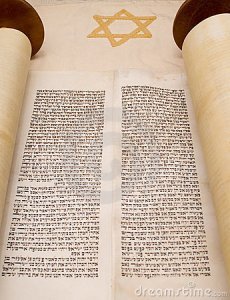
June 16, 2019
Travelogues by Poets
The Diaries of Lea Goldberg translated by Tsipi Keller. The Hebrew poet’s
travelogue of her 1937 trip to Italy

If you like travel blogs by poets try this one by National Book Award
winner Karen Swenson:
April 17, 2019
Brief review: The Rabbi of Lud by Stanley Elkin
I’m taking a break from reading and reviewing new books to catch up with
some old ones on my TBR list. I’m also trying to improve my Hebrew
and am currently reading and enjoying the Hebrew edition of Ya’akov
Shabtai’s unfinished last novel סוף דבר (published in English as Past Perfect).
In circumstances when I cannot read with my eyes I read with my ears.
I just finished listening to the audiobook of The Rabbi of Lud by
Stanley Elkin, a writer of whom I became aware while reading his
friend William H. Gass while preparing to review
The William H. Gass Reader. My brief review
of The Rabbi of Lud appears on Goodreads.
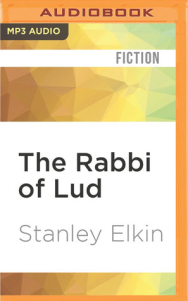
January 24, 2019
Book review: Muck by Dror Burstein
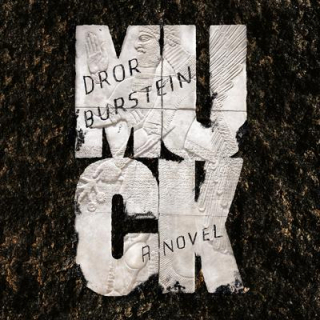
“… readers will enjoy this funny, imaginative, and handsomely crafted novel
first and foremost as a memorable work of literature, and as such it
deserves to reach a wide audience.” — From my review of Muck by Dror
Burstein in New York Journal of Books
November 7, 2018
Book review: The William H. Gass Reader
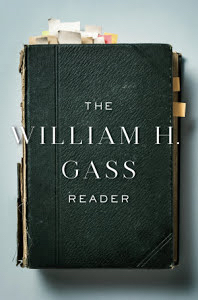
“According to Gass a total aesthete reduces everything to
style; the centrality of moral and ethical issues in his
writing proves that Gass is not merely an aesthete.
Whether or not they agree with him his readers will never
be cognitively malnourished, and his poetic prose is a joy
to read even when its vision is pessimistic.”
— From my review of The William H. Gass Reader in
New York Journal of Books

